
"Software" is the world of electric information and also computer programming. It can, however, be understood to include the entire world of electronic service environments that began with the telegraph and which include the telephone as well as television and satellites. All of these constitute a new service environment of electronics pulsation which makes possible the dealing in "futures" and the anticipation of the gaps and intervals in supply and demand. At electric speeds of information movement, it is precisely these intervals that invite the dealer in "futures" to gamble. Instant information reveals a wide diversity of new patterns of change; which entice everybody to anticipate changes to come. Ordinary people are thus inspired with the mania which is born of perception, not of the connection, but of the interval between the now and the rapidly approaching new situation. This becomes a way of living "as if every moment were your next." The instant and simultaneous have no sequence or connections, but are characterized by resonant intervals and discontinuity. In the new world environment of instant information there is need to pay attention to the neglected factor of the gap or interval as crux in creating inflation. As long as there is an interval of play between the wheel and the axle, there is a rotary action. It is the interval of play that keeps the wheel and axle in touch. And the gap or interval is "where the action is."
A Media Approach to Inflation

NYTimes Profile
January 29, 1967
Understanding McLuhan (In Part)
By RICHARD KOSTELANETZ
Marshall McLuhan, one of the most acclaimed, most controversial and certainly most talked-about of contemporary intellectuals, displays little of the stuff of which prophets are made. Tall, thin, middle-aged and graying, he has a face of such meager individual character that it is difficult to remember exactly what he looks like; different photographs of him rarely seem to capture the same man.
By trade, he is a professor of English at St. Michael's College, the Roman Catholic unit of the University of Toronto. Except for a seminar called "Communication," the courses he teaches are the standard fare of Mod. Lit. and Crit., and around the university he has hardly been a celebrity. One young woman now in Toronto publishing remembers that a decade ago, "McLuhan was a bit of a campus joke." Even now, only a few of his graduate students seem familiar with his studies of the impact of communications media on civilization those famous books that have excited so many outside Toronto.
McLuhan's two major works "The Gutenberg Galaxy" (1962) and "Understanding Media" (1964) have won an astonishing variety of admirers. General Electric, I.B.M. and Bell Telephone have all had him address their top executives, so have the publishers of America's largest magazines. The composer John Cage made a pilgrimage to Toronto especially to pay homage to McLuhan and the critic Susan Sontag has praised his "grasp on the texture of contemporary reality."
He has a number of eminent and vehement detractors, too. The critic Dwight Macdonald calls McLuhan's books "impure nonsense, nonsense adulterated by sense." Leslie Fiedler wrote in Partisan Review "Marshall McLuhan. . .continually risks sounding like the body-fluids man in "Doctor Strangelove."
Still the McLuhan movement rolls on. Now he has been appointed to the Albert Schweitzer Chair in the Humanities at Fordham University, effective next September. (The post, which pays $100,000 a year for salary and research expenses, is one of 10 named for Schweitzer and Albert Einstein, underwritten by New York State. Other Schweitzer Professors include Arthur Schlesinger Jr. at City University and Conor Cruise O'Brien at N.Y.U.).
What makes McLuhan's success so surprising is that his books contain little of the slick style of which popular sociology is usually made. As anyone who opens the covers immediately discovers, "Media" and "Galaxy" are horrendously difficult to read, clumsily written, frequently contradictory, oddly organized, and overlaid with their author's singular jargon. Try this sample from "Understanding Media." Good luck.
The movie, by sheer speeding up the mechanical, carried us from the world of sequence and connections into the world of creative configuration and structure. The message of the movie medium is that of transition from lineal connections in configurations. It is the transition that produced the now quite correct observation: "If it works, it's obsolete." When electric speed further takes over from mechanical movie sequences, then the lines of force in structures and in media become loud and clear. We return to the inclusive form of the icon.
Everything McLuhan writes is originally dictated, either to his secretary or to his wife, and he is reluctant to rewrite, because, he explains, "I tend to add and the whole thing gets out of hand." Moreover, some of his insights are so original that they evade immediate understanding; other paragraphs may forever evade explication. "Most clear writing is a sign that there is exploration going on," he rationalizes. "Clear prose indicates the absence of thought."
The basic themes in these books seem difficult at first, because the concepts are as unfamiliar as the language, but on second (or maybe third) thought the ideas are really quite simple. In looking at history, McLuhan espouses a position one can only call "technological determinism." That is, whereas Karl Marx, an economic determinist, believed that the economic organization of a society shapes every important aspect of its life, McLuhan believes that crucial technological inventions are the primary influence. McLuhan admires the work of the historian Lynn White Jr., who wrote in "Medieval Technology and Social Change" (1962) that the three inventions of the stirrup, the nailed horseshoe and the horse collar created the Middle Ages. With the stirrup, a soldier could carry armor and mount a charger; and the horseshoe and harness brought more efficient tilling of the land, which shaped the feudal system of agriculture, which, in turn, paid for the soldier's armor.
Pursuing this insight into technology's importance, McLuhan develops a narrower scheme. He maintains that a major shift in society's predominant technology of communications is the crucially determining force behind social changes. Initiating great transformations not only in social organization but human sensibilities. He suggests in "The Gutenberg Galaxy" that the invention of movable type shaped the culture of Western Europe from 1500 to 1900. The mass production of printed materials encouraged nationalism by allowing more rapid and wider spread of information than permitted by hand-written messages. The linear forms of print influenced music to repudiate the structure of repetition, as in Gregorian changes, for that of linear development, as in a symphony. Also, print reshaped the sensibility of Western man, for whereas he once saw experience as individual segments, as a collection of separate entities, man in the Renaissance saw life as he saw print--as a continuity, often with casual relationships. Print even made Protestantism possible, because the printed book, by enabling people to think alone, encouraged individual revelation. Finally: "All forms of mechanization emerge from movable type, for type is the prototype of all machines."
The real introduction to "The Gutenberg Galaxy" is the final chapter called "The Galaxy Reconfigured"; even McLuhan advises his readers to start there. With "Media," the introduction and the first two chapters form the best starting point; thereafter, the reader is pretty much free to wander as he wishes. "One can stop anywhere after the first few sentences and have the full message, if one is prepared to 'dig' it," McLuhan once wrote of non-Western scriptural literature; the remark is applicable to his own books.
Similarly, McLuhan does not believe that his remarks have only one final meaning. "My book," he says, "is not a package but part of the dialogue, part of the conversation." (Indeed, he evaluates other books less by how definitively they treat their subject--the academic standard--than by how much thought they stimulate. Thus, a book may be wrong but still great. By his own standards, "Media" is, needless to say, a masterpiece.)
Underlying McLuhan's ideas is the question of whether technology is beneficial to man. Thinkers such as the British critic F. R. Leavis have argued, on the one hand, that technology stifles the blood of life by dehumanizing the spirit and cutting existence off from nature; more materialist thinkers, on the other hand, defend the machine for easing man's burdens. McLuhan recognizes that electronic modes of communication represent, in the subtitle of "Media," "extensions of man." Whereas the telephone is an extension of the ear (and voice), so television extends our eyes and ears. That is, our eyes and ears attended John Kennedy's funeral, but our bodies stayed at home. As extensions, the new media offer both possibility and threat, for while they lengthen man's reach into his existence, they can also extend society's reach into him, for both exploitation and control.
To prevent this latter possibility, McLuhan insists that every man should know as much about the media as possible. "By knowing how technology shapes our environment, we can transcend its absolutely determining power," he says. "Actually, rather than a 'technological determinist,' it would be more accurate to say, as regards the future, that I am an 'organic autonomist.' My entire concern is to overcome the determinism that results from the determination of people to ignore what is going on. Far from regarding technological change as inevitable, I insist that if we understand its components we can turn it off any time we choose. Short of turning it off, there are lots of moderate controls conceivable." In brief, in stressing the importance of knowledge, McLuhan is a humanist.
McLuhan advocates radical changes in education, because he believes that a contemporary man is not fully "literate" if reading is his sole pleasure: "You must be literate in umpteen media to be really 'literate' nowadays." Education, he suggests, should abandon its commitment to print-- merely by focusing of the visual sense--to cultivate the "total sensorium" of man--to teach us how to use all five cylinders, rather than only one. "Postliterate does not mean illiterate," writes the Rev. John Culkin, S. J., director of the Communications Center at Fordham and a veteran propagator of McLuhan's ideas about multimedia education. "It rather describes the new social environment within which print will interact with a great variety of communications media."
Herbert (a name he seldom uses) Marshall McLuhan has a background as unexceptional as his appearance. He was born in Western Canada--Edmonton, Alberta--July 21, 1911, the son of mixed Protestant (Baptist and Methodist) parents. "Both agreed to go to all the available churches and services, and they spent much of their time in the Christian Science area," he recalls. His father was a real-estate and insurance salesman who, McLuhan remembers, "enjoyed talking with people more than pursuing his business." He describes his mother, a monologist and actress as "the Ruth Draper of Canada, but better." His brother is now an Episcopal minister in California.
After taking his B.A. and M.A. at the University of Manitoba, McLuhan followed the route of many academically ambitious young Canadians to England, where he attended Cambridge for two years. There, he remembers, the lectures of I. A. Richards and F. R. Leavis stimulated his initial interest in studying popular culture. Returning home in 1936, he took a job at the University of Wisconsin. The following year he entered the Catholic Church, and ever since, he has taught only at Catholic institutions--at St. Louis from 1937 to 1944, at Assumption in Canada form 1944 to 1946 and at St. Michael's College, a Basilian (C.S.B.) establishment, since 1946.
His field was originally medieval and Renaissance literature, and in 1942 he completed his Cambridge Ph.D. thesis on the rhetoric of Thomas Nashe, the Elizabethan writer. As a young scholar, he began his writing career, as every professor should, by contributing articles to the professional journals, and to this day, academic circles know him as the editor of a popular paperback textbook of Tennyson's poems. Moreover, his critical essays on writers as various as Gerard Manley Hopkins, John Dos Passos and Samuel Taylor Coleridge are frequently anthologized.
By the middle forties, he was contributing more personal and eccentric articles on more general subjects to several little magazines; before long, his pieces had such outrageous titles as "The Psychopathology of Time and Life." By the time his first book, "The Mechanical Bride," appeared in 1951, McLuhan had developed his characteristic intellectual style--the capacity to offer an endless stream of radical and challenging ideas.
Although sparsely reviewed and quickly remaindered, that book has come to seem, in retrospect, the first serious attempt to inspect precisely what effects mass culture had upon people and to discover what similarities existed between mass culture and élite art. Copies are so scarce that they now often bring as much as $40 secondhand. McLuhan had the foresight and self-confidence to purchase a thousand copies at remainder prices; he still gives them to friends, as well as selling them to strangers (at far below the going price). The bottom will soon drop out of the "Mechanical Bride" market, however, for Beacon Press plans to reissue it in paperback and Vanguard, its original publisher, in hardcover.
In 1953, the year after he became a full professor at St. Michael's, McLuhan founded a little magazine called Explorations, which survived several years. Along with a coeditor, the anthropologist Edmund S. Carpenter, McLuhan, collected some of the best material in a paperback called "Explorations in Communication" (1960), which is perhaps the ideal introduction to his special concerns and ideas.
Though McLuhan remains a Canadian citizen, he became, in 1959, director of the Media Project of the National Association of Educational Broadcasters and the United States Office of Education. Out of that experience came a report which, in effect, was the first draft of "Understanding Media." Then, in 1963, the University of Toronto appointed McLuhan to head a newly formed Center for Culture and Technology "to study the psychic and social consequences of technology and the media."
A visitor expects the Center, so boldly announced on its letterhead, to be a sleek building with a corps of secretaries between the corridor and the thinkers. In fact, the Center is more a committee than an institution. It exists, for the present, only in McLuhan's cluttered office.
Bookcases cover the walls, with battered old editions of the English classics on the top shelves and a varied assortment of newer books on Western civilization on the more accessible shelves--6,000 to 7,000 volumes in all. More books and papers cover several large tables. Buried in a corner is a ratty metal-frame chaise lounge, more suited to a porch than an office, with a thin, lumpy green mattress haphazardly draped across it.
In temperament, the Center's head is more passive than active. He often loses things and forgets deadlines. The one singular feature of his indefinite face is his mouth. Only a sliver of his lips is visible from the front, but from the side his lips appear so thick that his slightly open mouth resembles that of a flounder. His only visible nervous habits are tendencies to pucker his mouth and push his chin down toward his neck before he speaks, to twirl his glasses around his fingers when he lectures and to rub his fingers down the palms of his hands whenever he says "tactility."
The professor is a conscientious family man. He met his wife, Corrine, a tall and elegant Texan, in Los Angeles, where he was doing research at the Huntington Library and she was studying at the Pasadena Playhouse. Married in 1939, they have six children: Eric, 25; Mary and Theresa; 21- year-old twins, Stephanie, 19; Elizabeth, 16, and Michael 14, and the girls confirm their father's boast: "All my daughters are beautiful." Every Sunday he leads his brood to mass.
They live in a three-story house with a narrow front and a small lawn punctuated by a skinny driveway leading to a garage in the back. The interior is modest, except for an excessive number of books, both shelved and sprawled. McLuhan likes to read in a reclining position, so across the top of the living-room couch, propped against the wall, are 20 or so fat scholarly works; interspersed among them are a few mysteries--his favorite light reading. He rarely goes to the movies or watches television; most of his own cultural intake comes via print and conversation. Talking seems his favorite recreation.
McLuhan seems pretty much like any other small-city professor until he begins to speak. His lectures and conversation are a singular mixture of original assertions, imaginative comparisons, heady abstractions and fantastically comprehensive generalizations, and no sooner has he stunned his listeners with one extraordinary thought than he hits them with another. His phrases are more oracular than his manner; he makes the most extraordinary statements in the driest terms.
In his graduate seminar, he asks: "What is the future of old age?" The students look bewildered. "Why" he replies to his own question, "exploration and discovery." Nearly everything he says sounds important. Before long, he has characterized the Batman TV show as "simply an exploitation of nostalgia which I predicted years ago." The 25 or so students still look befuddled and dazed, hardly anyone talks but McLuhan. 'The criminal, like the artist, is a social explorer," he goes on. "Bad news reveals the character of change; good news does not." No one asks him to be more definite, because his talk intimidates his listeners.
He seems enormously opinionated; in fact, he conjures insights. His method demands a memory as prodigious as his curiosity. He often elevates an analogy into a grandiose generalization, and he likes to make his points with puns: "When a thing is current, it creates currency." His critics ridicule him as a communications expert who cannot successfully communicate; but too many of his listeners, say his admirers, suffer from closed minds.
In "Understanding Media," McLuhan suggests that electric modes of communication--telegraph, radio, television, movies, telephones, computers--are similarly reshaping civilization in the 20th century. Whereas print-age man saw one thing at a time in consecutive sequence--like a line of type--contemporary man experiences numerous forces of communication simultaneously, often through more than one of his senses. Contrast, for example, the way most of read a book with how we look at a newspaper. With the latter, we do not start one story, read it through and then start another. Rather, we shift our eyes across the pages, assimilating a discontinuous collection of headlines, subheadlines, lead paragraphs, photographs and advertisements. "People don't actually read newspapers," McLuhan says; "they get into them every morning like a hot bath."
Moreover, the electronic media initiate sweeping changes in the distribution of sensory awareness-- in what McLuhan calls the "sensory ratios." A painting or a book strikes us through only one sense, the visual; motion pictures and television hit us not only visually but also aurally. The new media envelop us, asking us to participate. McLuhan believes that such a multisensory existence is bringing a return to the primitive man's emphasis upon the sense of touch, which he considers the primary sense, "because it consists of a meeting of the senses." Politically, he sees the new media as transforming the world into "a global village," where all ends of the earth are in immediate touch with one another, as well as fostering a "retribalization" of human life. "Any highway eatery with its TV set, newspaper and magazine," he writes, "is as cosmopolitan as New York or Paris."
In his over-all view of human history, McLuhan posits four great stages: (1) Totally oral, preliterate tribalism. (2) The codification by script that arose after Home in ancient Greece and lasted 2,000 years. (3) The age of print, roughly from 1500 to 1900. (4) The age of electronic media, from before 1900 to the present. Underpinning this classification is his thesis that "societies have been shaped more by the nature of the media by which men communicate than by the content of the communication."
This approach to the question of human development, it should be pointed out, is not wholly original. McLuhan is modest enough to note his indebtedness to such works as E. H. Gombrich's "Art and Illusion" (1960), H. A. Innis's "The Bias of Communication" (1951, recently reissued with an introduction by McLuhan), Siegfried Giedion's "Mechanization Takes Command" (1948), H. J. Chaytor's "From Script to Print" (1945) and Lewis Mumford's "Technics and Civilization" (1934).
McLuhan's discussions of the individual media move far beyond the trade talk of communications professionals (he dismisses Gen. David Sarnoff, the board chairman of R.C.A., as "the voice of the current somnambulism"). Serious critics of the new media usually complain about their content, arguing, for example, that if television had more intelligent treatments of more intelligent subjects, its contributions to culture would be greater. McLuhan proposes that, instead, we think more about the character and form of the new media. His most famous epigram-"The medium is the message"- -means several things.
The phrase first suggests that each medium develops an audience of people whose love for that medium is greater than their concern for its content. That is, the TV medium itself becomes the prime interest in watching television; just as some people like to read for the joy of experiencing print, and more find great pleasure in talking to just about anybody on the telephone, so others like television for the mixture of kinetic screen and relevant sound. Second, the "message" of a medium is the impact of its forms upon society. The "message" of print was all the aspects of Western culture that print influenced. "The message of the movie medium is that of transition from linear connections to configurations." Third, the aphorism suggests that the medium itself--its form-- shapes its limitations and possibilities for the communication of content. One medium is better than another at evoking a certain experience. American football, for example, is better on television than on radio or in a newspaper column; a bad football game on television is more interesting than a great game on radio. Most Congressional hearings, in contrast, are less boring in the newspaper than on television. Each medium seems to possess a hidden taste mechanism that encourages some styles and rejects others.
To define this mechanism, McLuhan has devised the categories of "hot" and "cool" to describe simultaneously the composition of a communications instrument or a communicated experience, and its interaction with human attention. A "hot" medium or experience has a "high definition" or a highly individualized character as well as a considerable amount of detailed information. "Cool" is "low" in definition and information; it requires that the audience participate to complete the experience. McLuhan's own examples clarify the distinction: "A cartoon is 'low' definition, simply because very little visual information is provided." Radio is usually a hot medium; print, photography, film and paintings essentially are hot media. "Any hot medium allows of less participating than a cool one, as a lecture makes for less participation than a seminar, and a book for less than a dialogue."
The terms "hot" and "cool" he also applies to experiences and people, and, pursuing his distinction, he suggests that while a hot medium favors a performer of a strongly individualized presence, cool media prefer more nonchalant, "cooler" people. Whereas the radio medium needs a voice of a highly idiosyncratic quality that is instantly recognizable--think of Westbrook Van Vorhees, Jean Shepherd, Fanny Brice--television favors people of a definition so low they appear positively ordinary. With these terms, one can then explain all sorts of phenomena previously inscrutable-- such as why bland personalities (Ed Sullivan, Jack Paar) are so successful on television.
"It was no accident that Senator McCarthy lasted such a very short time when he switched to TV," McLuhan says. "TV is a cool medium. It rejects hot figures and hot issues and people from the hot press media. Had TV occurred on a large scale during Hitler's reign he would have vanished quickly." As for the 1960 Presidential debates, McLuhan explains that whereas Richard Nixon, essentially a hot person was superior on radio, John F. Kennedy was the more appealing television personality. (It follows that someone with as low a definition as Dwight Eisenhower would have been more successful than either.)
The ideas are not as neatly presented as this summary might suggest, for McLuhan believes more in probing and exploring--"making discoveries"--than in offering final definitions. For this reason, he will rarely defend any of his statements as absolute truths, although he will explain how he developed them. Some perceptions are considerably more tenable than others--indeed, some are patently ridiculous--and all his original propositions are arguable, so his books require the participation of each reader to separate wheat is what to him from the chaff. In McLuhanese, they offer a cool experience in a hot medium.
A typical reader's scorecard for "Media" might show that about one-half is brilliant insight; one- fourth, suggestive hypotheses; one-fourth, nonsense. Given the book's purpose and originality, these are hardly bad percentages. "If a few details here and there are wacky," McLuhan says, "It doesn't matter a hoot."
McLuhan eschews the traditional English professor's expository style--introduction, development, elaboration and conclusion. Instead, his books his imitate the segmented structure of the modern media. He makes a series of direct statements. None of them becomes a thesis but all of them approach the same phenomenon from different angles. This means that one should not necessarily read his books from start to finish--the archaic habit of print-man.
The major incongruity is that a man so intellectually adventurous should lead such a conservative life: the egocentric and passionately prophetic qualities of his books contrast with the personal modesty and pervasive confidence of a secure Catholic. What explains the paradox is that "Marshall McLuhan," the thinker, is different from H. M. McLuhan," the man. The one writes books and delivers lectures; the other teaches school, heads a family and lists himself in the phone book. It was probably H. M. who made that often quoted remark about Marshall's theories: "I don't pretend to understand them. After all, my stuff is very difficult."
And the private H. M. will say this about the technologies his public self has so brilliantly explored: "I wish none of these had ever happened. They impress me as nothing but a disaster. They are for dissatisfied people. Why is man so unhappy he wants to change his world? I would never attempt to improve an environment--my personal preference, I suppose, would be a preliterate milieu, but I want to study change to gain power over it."
His books, he adds, are just "probes"--that is, he does not "believe" in his work as he believes in Catholicism. The latter is faith; the books are just thoughts. "You know the faith differently from the way you 'understand' my books."
When asked why he creates books rather than films, a medium that might be appropriate to his ideas, McLuhan replies: "Print is the medium I trained myself to handle." So, all the recent acclaim has transformed McLuhan into a bookmaking machine. Late this year, we shall have "Culture Is Our Business," which he describes as a sequel to "The Mechanical Bride." Perhaps reflecting his own idea that future art will be, like medieval art, corporate in authorship, McLuhan is producing several more books in dialogue with others. With Wilfred Watson, a former student who is now an English professor at the University of Alberta, he is completing a history of stylistic change, "From Cliché to Archetype." With Harley W. Parker, head of design at the Royal Ontario Museum, he has just finished "Space in Poetry and Painting," a critical and comparative survey of 35 pairs of poems and pictures from primitive times to the present.
In tandem with William Jovanovich, the president of Harcourt, Brace and World, McLuhan is writing "The Future of the Book," a study of the impact of xerography, and along with the management consultant Ralph Baldwin he is investigating the future of business in "Report to Management." As if that were not enough, he joined with the book designer Quentin Fiore to compile "The Medium Is the Massage," an illustrated introduction to McLuhanism that will be out this spring; the two are doing another book on the effect of automation. Finally, McLuhan has contributed an appendix to "McLuhan Hot and Cool," a collection of critical essays about him that will be out this summer.
On another front, McLuhan and Prof. Richard. J. Schoeck, head of the English Department at St. Michael's, have recently produced two imaginative textbooks, "The Voices of Literature," for use in Canadian high schools. And with Professor Schoeck and Ernest J. Sirluck, dean of the graduate school at the University of Toronto, McLuhan oversees a series of anthologies of criticism being published jointly by the Toronto and Chicago University Presses. Obviously, despite the bait from the worlds of media and advertising, McLuhan is keeping at least one foot planted in academia. Only this past December, he addressed the annual meeting of the Modern Language Association on the confrontation of differing sensory modes in 19th-century poetry.
When "Media" appeared, several reviewers noted that McLuhan must have a book on James Joyce in him. That task he passed on to his son Eric, who is writing a prodigious critical study of "Finnegans Wake." Among McLuhan's greatest desires is establishing the Center for Culture and Technology in its own building, with sufficient funds to support a reference library of the sensory experience of man. That is, he envisions methods of measuring all the "sensory modalities" (systems of sensory organization) in all cultures, and of recording this knowledge on coded tapes in the Center. Assistant Professor of Design Allen Bernholtz, one of McLuhan's colleagues, foresees a machine that will, following taped instructions, artificially create a sensory environment exactly similar to that of any other culture; once the subject stepped into its capsule, the machine could be programed to simulate what and how, say, a Tahitian hears, feels, sees, smells and tastes. "It will literally put you in the other guy's shoes," Bernholtz concludes. So far, the projected Center has not received anywhere near the $5-million backing it needs to begin.
Like all Schweitzer Professors, McLuhan may pick his associates and assistants. His entourage will include Professor Carpenter, with whom he coedited Explorations; Harley Parker and Father Culkin. In addition to teaching one course and directing a research project, McLuhan and his associates plan to conduct numerous dialogues and to publish a son of Explorations. "Once you get a lot of talk going," he said recently, "you have to start a magazine." Because he believes that "I can better observe America from up here," he had rejected previous lucrative offers that involved forsaking Toronto, and as Schweitzer professorships are formally extended for only one year (although they are renewable), McLuhan will officially take only a sabbatical leave from St. Michael's.
McLuhan has always been essentially a professor living in an academic community, a father in close touch with his large family and a teacher who also writes and lectures. When some V.I.P.'s invited him to New York a year ago, he kept them waiting while he graded papers. Although he does not run away from all the reporters and visitors, he does little to attract publicity. His passion is the dialogue; if the visitor can participate in the conversation, he may be lucky enough, as this writer was, to help McLuhan write (that is, dictate) a chapter of a book.
"Most people," McLuhan once remarked, "are alive in an earlier time, but you must be alive in our own time. The artist," he added, "is the man in any field, scientific or humanistic, who grasps the implications of his actions and of new knowledge in his own time. He is the man of integral awareness."
Although his intention was otherwise, McLuhan was describing himself--the specialist in general knowledge. Who would dare surmise what thoughts, what perceptions, what grand schemes he will offer next?
Richard Kostelanetz is a critic who produces film portraits of American intellectuals for the B.B.C. His latest book, "The Theatre of Mixed Means," will be published this fall.













![et cetera : LOVE [1977]](https://blogger.googleusercontent.com/img/b/R29vZ2xl/AVvXsEgQ8s7vwLQuzHDNgqlfBacxRkEbOErToak9kmgFl0VmyIYEqS9qIzNIVcXKpzTncPhqo3TSgOyztAguIW6OlXw65aFHmpx6cRzmvCUQQMTwUGUOd0iE0GbJakEc3g3kBAJrvlZP4z3eesg/s1600/etc1977.jpg)









![MAC LUHAN [sic] : LOST IN TRANSLATION](https://blogger.googleusercontent.com/img/b/R29vZ2xl/AVvXsEg92tMqBMDA917NDivsS2ZwIirx9KTf24tOCgFFnK65p7Hw5dvqEh1e2aefCynj2UW8u-k8zwBXbjgypsCXUcv-5G7ZCsyDB13giHEjmhVISAeW-oI_JV6ePOXW_XBDPwy2nREAoqRU7Z8/s1600/MAC.jpg)






















![Les Yeux De Nadja [unpublished]](https://blogger.googleusercontent.com/img/b/R29vZ2xl/AVvXsEgrXohpIuxxYyjKoqBSQf3TpYGjnttZnjRFvmMdshadfnVKi7PMAjIqEuqYctZFXOFH2n-oH75oJx-YkaON7xvaZgVdvaK0zfSOurEmCKqmWF6qXh2F3VbqyixfGhvY4qH6LENMTs1wCIw/s1600/2xsurreal.jpg)
















![PIED PIPERS [MARSH] ALL](https://blogger.googleusercontent.com/img/b/R29vZ2xl/AVvXsEhqvGIGG9lWZYhFZRVc_V8EJG2apQBsys4kNQOQsA0EV6H6Tg-SMN0sX15NXy_GzsF3xAUdcb2QlfvJk-RU-Rha-3Eu5Mnglkf5KLe6pccVqAP4VR_Gi4fGQ716QSmDe3Zna5Uwct5d2sw/s1600/piedPiperMarshALL270.png)






























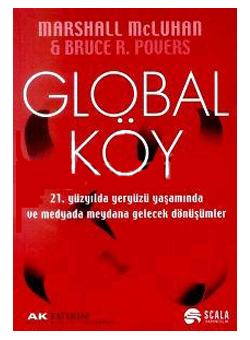




























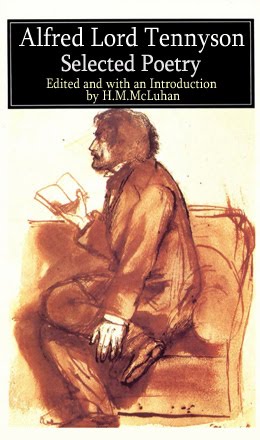

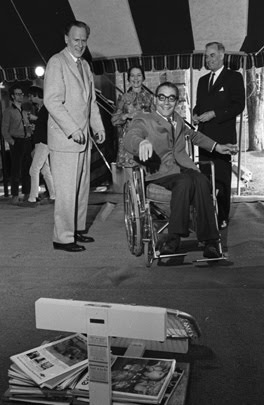




![PICNIC IN SPACE : The Great Minds of Our Time Film Series [1973]](https://blogger.googleusercontent.com/img/b/R29vZ2xl/AVvXsEjyov75DRIUBWcYLkzPYmupFy8CQ9dQ4Q798zDIN6jPNsSdBB_WuOcvPl4WjMAz10csG071oCO3BCUtIcKyHoIkCN0lCy0OxGCV_HrLXrGNKRpUiKMrqzkJh4LSc7jT_KrrqmClapSlVa8/s1600-r/PicnicInSpace.jpg)


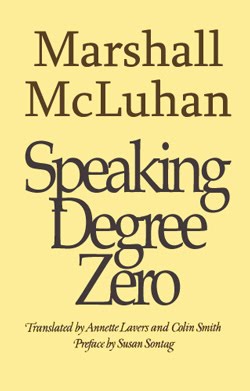






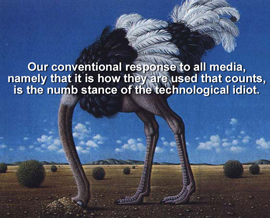


















![more Hidden ground [re:Bride] : the "flippancy" of tone seemed just "right"](https://blogger.googleusercontent.com/img/b/R29vZ2xl/AVvXsEg-hQyF9KGGhKYc73nUGmV1bStJ4fTJVh0-TL1ZtikLZEv5ppjhB3DOhFcVuzGq-kByrwtTAWgCcE173pA3UTIPe7h6xJjsPt7lRvNym007ZsdXenMDLNimKcwtaTOqkGleoxmXOeCKtxXL/s1600-r/LEAVISLEWIS.png)
















![BABA WAWA [TODAY SHOW, Toronto City Hall 1970]](https://blogger.googleusercontent.com/img/b/R29vZ2xl/AVvXsEjTZAIFkA07K36WGk951vmZnLPU99fOdNzlvVhyphenhyphenhKZEKu2n2AW5EA1CDZGaTk0aYRXUv7IOXG39igaikoE6SWm8j7QIG96wYRE54oBXwvlaNCJzp15vdkrcqR97IMMny-8sHjM-VDotTOaY/s1600-r/babaWawa.jpg)

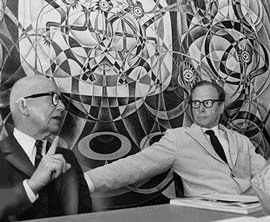

![enter the dragon : "typhon in america" [unpublished]](https://blogger.googleusercontent.com/img/b/R29vZ2xl/AVvXsEjdCnZdJ6JbaLc6hyUmUJo5UJ0m8WZSj_afYU9oRlHKIUgAIfcy2EPHNAptSRYEAmpOf0Xaa0B8iMgOTF302lY0Xmbyne0hvrdRyNo-t0Q-PPdzqX39uI3T5x5FppRPaQf9sSaXytrOpWVN/s1600-r/TIA.jpg)




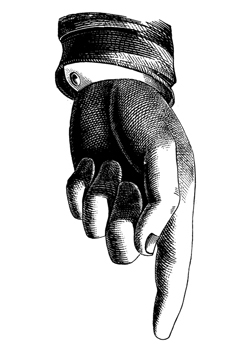






















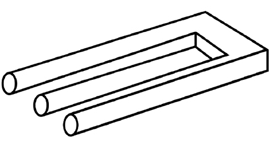









![Take Today [1972] : "the consumer becomes a producer..."](https://blogger.googleusercontent.com/img/b/R29vZ2xl/AVvXsEhA53bdVdTaXdQo1fDmrsI8oiAwF-3jampcanOq8uk3QMh8_ImkNsTiKd4-RnZY8Vbwqh1fymJiyCl1CSLcSonXHQM6XbnJYQi_Vu89gbAV4jVq73EtlbM3w6CthyphenhyphenV_pHEjE6eu_VhC489u/s1600-r/PROSUMER.jpg)








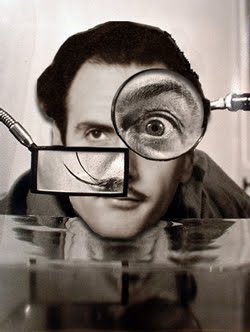















































































![" Outtragedy of poetscalds!, Acomedy of letters " [ FW 425.24]](https://blogger.googleusercontent.com/img/b/R29vZ2xl/AVvXsEhJMrJLN3oPUb25A2tjQtWZcZxA4wZB0IOvaIAvxosAUqlFc258HHvzvlnHHvKhKq7hG3epo76izY2Bu0HC3Cy-8S46Rf0Wni3L8j8jEfpT7sXK3UFlXBMtN2v2JdrmdxvWk8VWKjkhN4-9/s1600-r/preplexLP.png)







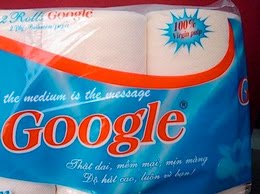



![mars[HAL]9000 : " Tomorrow is our permanent address."](https://blogger.googleusercontent.com/img/b/R29vZ2xl/AVvXsEhmblupqmUiuV3GbyayJiDRGEO63TEgwjHi-i8b0kVYDvXrKFWTCyl-e21la4QJXC4nDFDzx51Omi6fYPLJcqRHFoP6zSsL0CVZF98eMf6mxCE2WDfvMmT4q9G3X45-P0IYGDmliE0fCR3C/s1600-r/marsHAL9000_250.jpg)












































































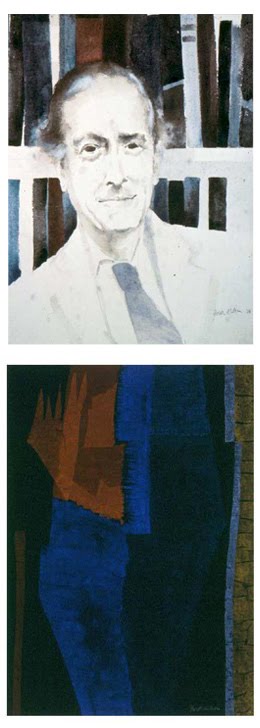















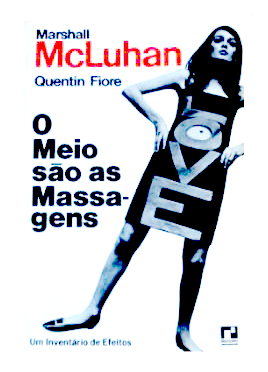





































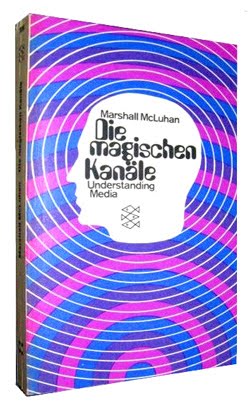
























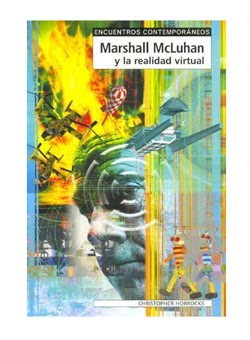




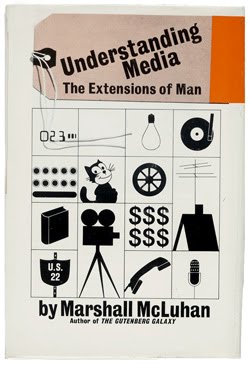









































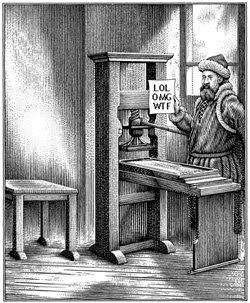








![Lucifer [from Latin] <br>meaning "light-bearer"](https://blogger.googleusercontent.com/img/b/R29vZ2xl/AVvXsEhq-2kZZOfh-Syv1Ewa0Ns2O6ZeP59pcsJp9ihhKcXCaovYZO_cKxffC5iSKOXFHr6E1jiHc6zedt1U6I95831RgpVdm3qk8-9C3y1yPyrCiQe4jgx-DsbeHnjKnw9t6Qx3ZM5TSYxiPj5H/s1600-r/lucifer.png)


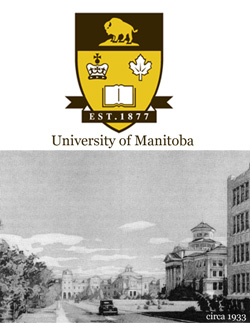










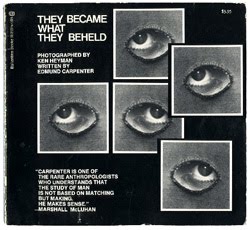






































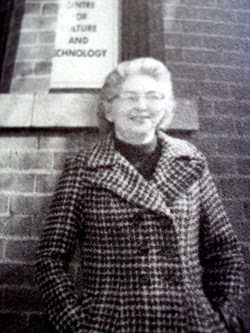
















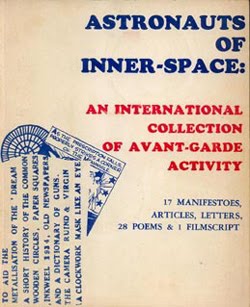












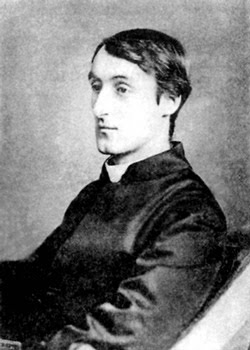


















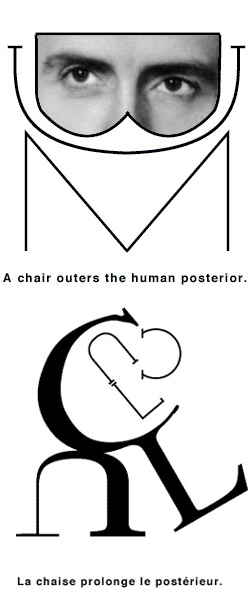






















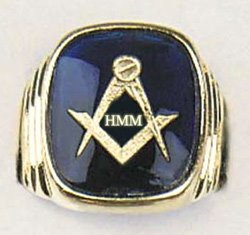















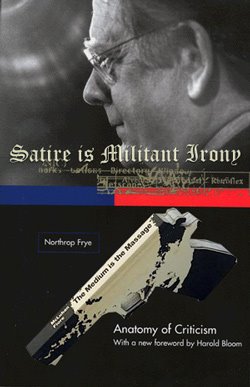
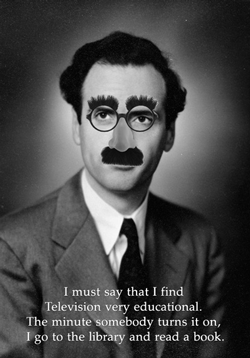






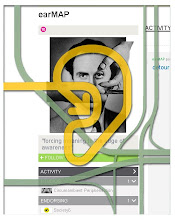















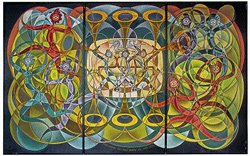










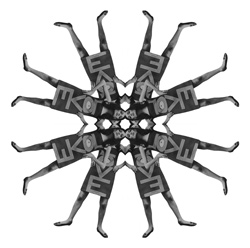



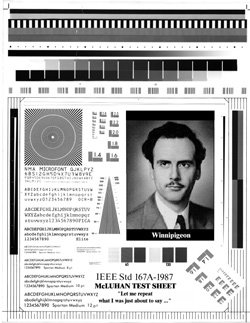

No comments:
Post a Comment